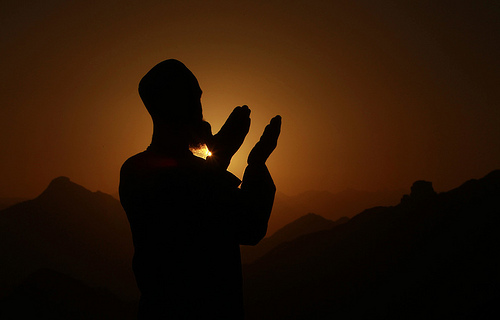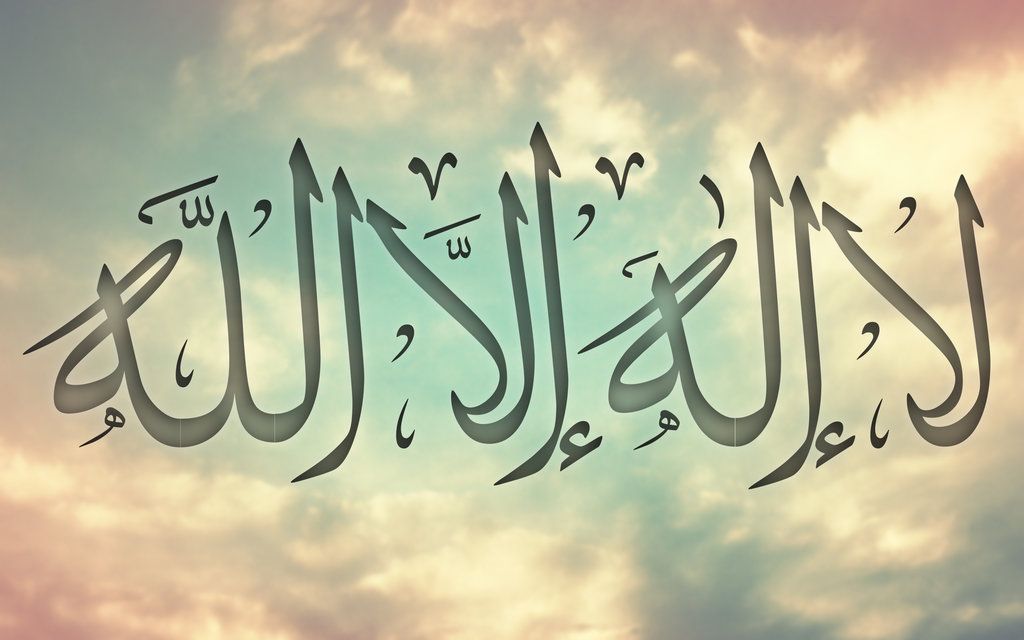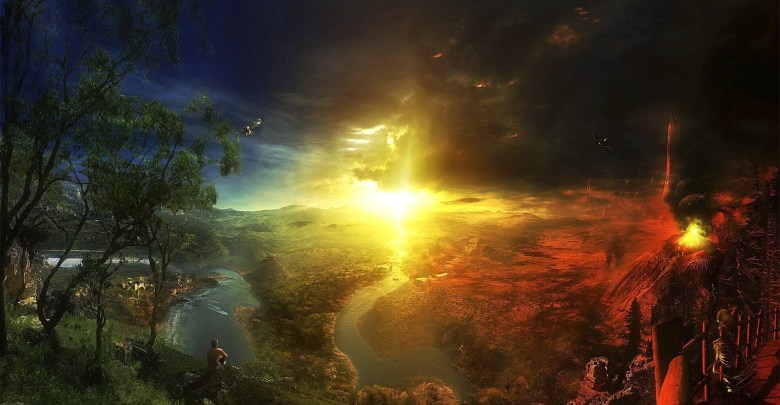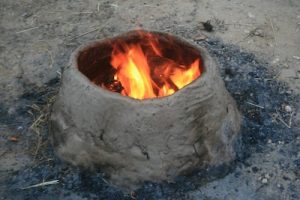بِسْمِ اللهِ الرَّحْمٰنِ الرَّحِيْمِ
Dua is a form of prayer and it could be made at any time and anywhere there is no fixed time and place of performing. It is considered as a weapon with the help of which we can change our situation by asking help from Allah. It is a form of maintenance for one’s soul.
However, even though it can be done at any time, there are times highlighted by hadith:
1. The Last Third Of The Night
Abu Hurairah (RA) narrated that Allah’s Messenger (SAW) said: ‘In the last third of every night our Rabb (Cherisher and Sustainer) (Allah (SWT)) descends to the lowermost heaven and says; “Who is calling Me, so that I may answer him? Who is asking Me so that may I grant him? Who is seeking forgiveness from Me so that I may forgive him?.”‘ [Bukhari]
Amr ibn Absah narrated that the Prophet said: ‘The closest any worshipper can be to His Lord is during the last part of the night, so if you can be amongst those who remember Allah at that time, then do so.'[Tirmidhi]
2. Late at night
When people are sleeping and busy with worldly pleasures Allah (SWT) gives the believers an opportunity, or an answer hour if they can fight sleep and invoke Allah (SWT) for whatever they need. The Prophet (SAW) said: ‘There is at night an hour, no Muslim happens to be asking Allah any matter of this world or the Hereafter, except that he will be given it, and this (occurs) every night.’
[Muslim]
3. Between Adhan and Iqamah
Anas (RA) narrated that Allah’s Messenger (SAW) said: ‘A supplication made between the Adhan and Iqama is not rejected.’
[Tirmidhi]
4. An Hour On Friday
Narrated Abu Hurairah (RA): Allah’s Messenger (SAW) talked about Friday and said: ‘There is an hour on Friday and if a Muslim gets it while offering Salat (prayer) and asks something from Allah (SWT), then Allah (SWT) will definitely meet his demand.’ And he (the Prophet (SAW) pointed out the shortness of that particular time with his hands. [Bukhari]
5. While Drinking Zamzam Water
Jaber (RA) narrated that Allah’s Messenger (SAW) said: ‘Zamzam water is for what it is drunk for.’ [Ahmad]. This means that when you drink Zamzam water you may ask Allah for anything you like to gain or benefit from this water such as healing from illness etc.
6. While Prostrating
Abu Hurairah (RA) narrated that Allah’s Messenger (SAW), said: ‘The nearest a slave can be to his Lord is when he is prostrating, so invoke (supplicate) Allah (SWT) much in it. [Muslim]
It is recommended by many scholars that dua made in prostration should be concentrated on one’s spiritual health and afterlife, rather than materialistic matters.
7. Before ending obligatory prayers:
Narrated Abu Omamah (RA): that Allah’s Messenger (SAW) was asked, O Messenger of Allah, which supplication is heard (by Allah (SWT), he said the end of the night and at the end of the obligatory Salat (prayer) [Tirmidhi] This time is after saying ‘At-tahyat’ , and before making Tasleem (finishing prayer).
8. The Night Of ‘Qadr’ (Decree)
This night is the greatest night of the year. This is the night which the almighty Allah (SWT) said about it:
“The night of Al-Qadar (Decree) is better than a thousand months.” [97: 3]
9. The One Who Is Suffering Injustice and Opression
The Messenger of Allah (SAW) said to Mua’ad Ibn Jabal (RA), ‘Beware of the supplication of the unjustly treated, because there is no shelter or veil between it (the supplication of the one who is suffering injustice) and Allah (SWT)’ [Bukhari and Muslim]
The prophet (SAW) declared, ‘Three people whose dua is never rejected (by Allah) are: the fasting person until he breaks his fast (in another narration, when he breaks fast), the just ruler and the one who is oppressed.'[Tirmidhi]
10. The Traveler
The Messenger of Allah (SAW) said: Three supplications will not be rejected (by Allah (SWT)), the supplication of the parent for his child, the supplication of the one who is fasting, and the supplication of the traveler. [Tirmidhi]
During travel supplication is heard by Allah if the trip is for a good reason, but if the trip is for a bad intention or to perform impermissible actions, this will not apply to it.
11. The Parent’s Supplication for their Child
The Messenger of Allah (SAW) said; Three supplications will not be rejected (by Allah (SWT)), the supplication of the parent for his child, the supplication of the one who is fasting, and the supplication of the traveler. [Tirmidhi]
12. The dua of a Muslim for his absent brother or sister Muslim stemming from the heart.
The prophet (SAW) said: ‘There is no believing servant who supplicates for his brother in his absence where the angels do not say, ‘the same be for you” [Muslim]
13. Dua on the Day of Arafat
The Messenger of Allah (SAW) said: ‘The best supplication is the supplication on the day of Arafat’. [Tirmidhi]
The day of Arafat is the essence and pinnacle of Hajj. On this great and momentous day, millions of worshippers gather together on one plain, from every corner of the world, with only one purpose in mind – to respond to the call of their Creator. During this auspicious day, Allah does not refuse the requests of His worshippers.
14. When Muslims gather for the purpose of invoking and remembering Allah (Dhikrullah).
The Prophet (SAW) said: If a group of people sit together remembering Allah, the angels will circle them, mercy will shroud them, peace will descend onto them and Allah will remember them among those with Him. [Muslim]
Ali (RA) reported that the Prophet (SAW) said: ‘When a Muslim visits his sick Muslim brother in the morning, seventy thousand angels make dua for his forgiveness till the evening. And when he visits him in the evening, seventy thousand angels make dua for his forgiveness till the morning, and he will be granted a garden for it in Jannah.’
[at-Tirmidhi, abu Dawud]
Allah says in the Qur’an:
“When my servants ask you concerning me, (tell them) I am indeed close (to them). I listen to the prayer of every suppliant when he calls on me.” [2:186]
He is always listening. We must never assume that He isn’t simply because we think that our dua is not answered. Allah knows why we were not given something at a certain time and there is always good that comes from it – we must always be grateful for His blessings. We must not mistake not receiving something we asked for straight away with Allah ignoring us. He says in another ayah:
“And [remember] when your Lord proclaimed, ‘If you are grateful, I will surely increase you [in favour]; but if you deny, indeed, My punishment is severe.’ ” [14:7]
He did not mention specifically what He will increase His believers who are grateful, he simply says “la’azinakoum” which simply means “I will increase you”. It covers all blessings and provisions – if Allah said something particular then He would have limited it but He didn’t.
So let us make dua for good, for this world and more importantly our afterlife. Let us also not be put down if we are not given what we want. Allah knows more, and Allah knows best.






